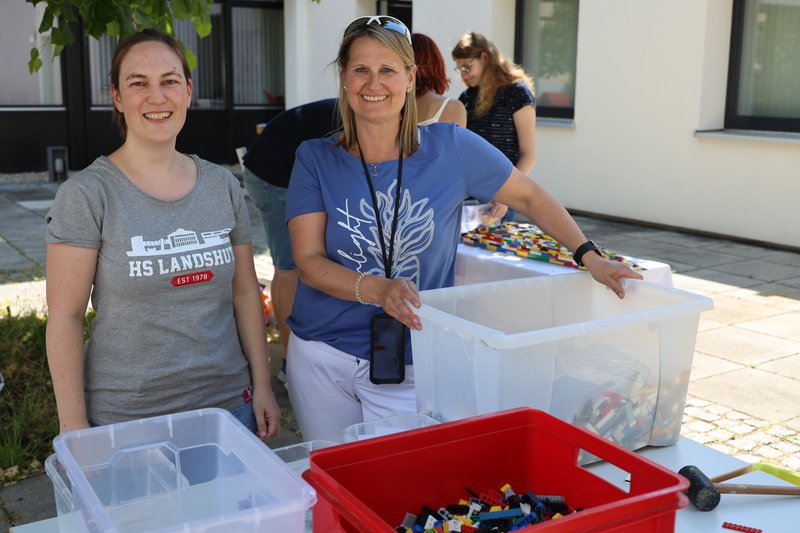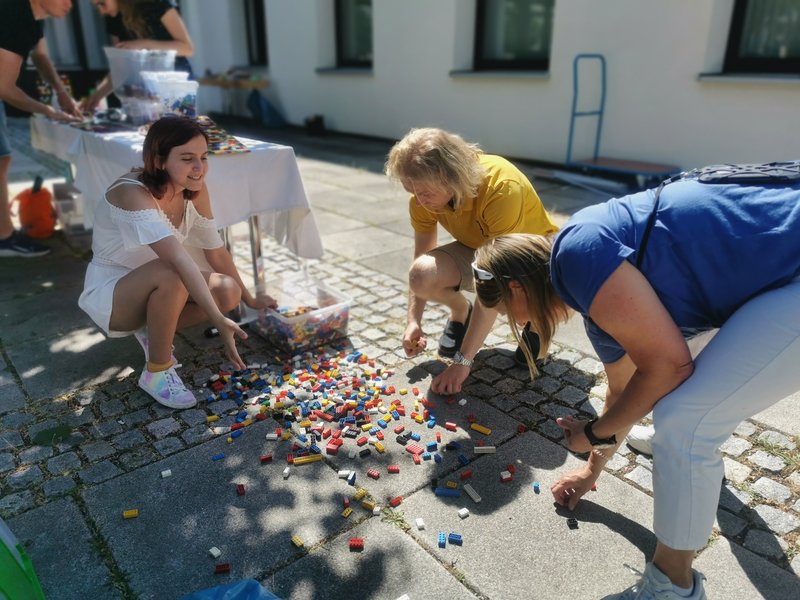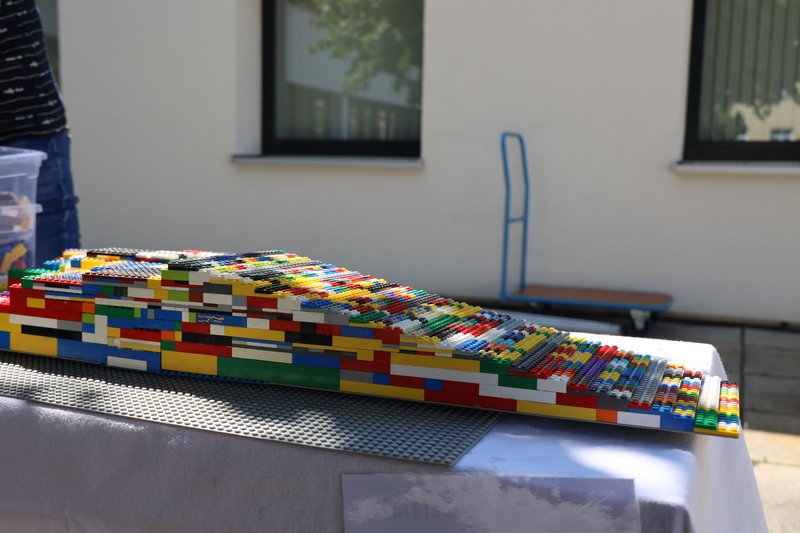A Landshut city center that promises accessibility. This is what an initiative of the Landshut Volunteer Agency (fala for short) is working towards. Project manager for inclusion through commitment, Daniela Hame, was able to count on support from the Landshut University of Applied Sciences. Together with the Faculty of Social Work, she organized kilos of colorful, used Lego bricks, which have since been assembled and glued into ramps by the project team. In the future, these ramps will allow wheelchair users to access areas that can only be reached via a step.
The Landshut Banana Flank team also came to the campus of the Landshut University of Applied Sciences for the occasion, where construction was taking place. It enthusiastically participated in the construction of the ramp, which will be used for their soccer court. Gerd Aufleger, 1st board member of the Bananenflanke looked accordingly joyfully into the future: "We are glad that our soccer court will soon be barrier-free - in our minds we already are."
Ramps according to the recipe of the "Lego granny"
Ramps made of Lego to provide access for fellow handicapped people. This idea originally came from the Hessian Rita Ebel. A construction manual for the mobile Lego ramps can be obtained from the so-called "Lego Grandma" from Hanau. On ten pages it describes in detail how Lego bricks can be built into one- or two-part ramps using commercially available tools and sealing glue. A single construction weighs around ten kilograms. The project therefore required a large number of Lego bricks in advance in order to be able to build a certain number of ramps.
Fala and Landshut University raise kilos of Lego
In order to have enough building material available, the fala and the Faculty of Social Work of the Landshut University of Applied Sciences joined forces. The link in this was the student Caroline Eichenberg. During an internship at the volunteer agency, she became involved in this inclusion project and told her own faculty about it: "I first got involved with the fala as a volunteer for refugees. During this time, I became aware of the project. The fala was in fact looking for a student assistant for inclusion projects. And here with Lego building, the inner child really comes through!". Andrea Räbiger, a lecturer at the Faculty of Social Work, and some of Caroline's fellow students didn't take long to be convinced by the sustainable project.
The project partners used social media to call for donations of Lego bricks to make it easier for people in wheelchairs to participate in public life in Landshut. More concretely, the project envisaged enabling members of the Bananenflanke team to get into their soccer court. The campaign turned out to be a success. Thanks to a strong willingness to donate, several boxes of the colorful game pieces were collected.
Repeat of joint barrier removal planned
Daniela Hame was enthusiastic about the commitment of all those involved: "With this project, we want to remove not only tangible barriers, but also barriers in the mind. I am therefore very pleased that so many different people are working here together with the Banana Flank team members." The representative of the university faculty, Andrea Räbiger, already knew about the lego ramp action from TV reports and was happy to help implement it on campus.
Due to the positive response, the organizers can already imagine a continuation through repeat events. "This was a really great event. Especially when then also the players of the banana flank with their coaches were there. Very interesting conversations and a lively exchange developed. I also received positive feedback from the studies. We can definitely imagine repeating this event. Ms. Räbiger and her students gave us great support," said a satisfied project manager, summing up her view of the get-together.
Photos: Landshut University of Applied Sciences
(free to use if source is acknowledged)



